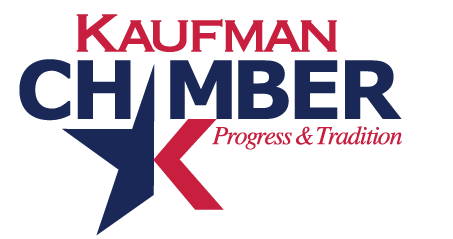Businesses are like people, with their own needs and wants, having all the same rights as people (except for voting). Being a business owner makes you the captain, steering the ship that is the entity and overseeing all the organization’s critical matters.
While you can delegate many tasks outward, overseeing taxes and ensuring they are correctly done is key and should be a task you don’t relinquish. The last thing you’d want is to be entrenched in an audit and discover that things were not done correctly, taxes are owed, interest accrued, and penalties are assessed—making a large tax bill even larger.
Before you can understand the ins and outs of taxes, you need to see the forest from the trees. The Kaufman Chamber of Commerce thrives on helping the businesses in our community succeed. That’s why we’ve provided some practical information and advice to consider for tax season:
Where to Start
All business entities need an employer identification number (EIN). This is an identifying number assigned by the Internal Revenue Service (IRS), much like each person gets a Social Security number (SSN).
Suppose your business is an unregistered sole proprietorship or a limited liability company (LLC) owned by a single owner. In that case, you can use your social security number and report the taxes on your personal returns via a Schedule C form. All other businesses require an EIN, which the IRS will use to track the business’s taxable activities and reporting requirements. You will use the EIN when you file the business entity tax returns.
Payroll Taxes
One of the easiest ways for a business to get in hot water is not correctly managing payroll taxes. In addition to withholding the taxes employees claim on their W-4s upon hire, employers are also responsible for a portion of taxes for each employee. Those taxes, also known as “Trust Fund Taxes,” consist of FICA (Federal Income Contributions Act — the Medicare and Social Security taxes), FUTA (Federal Unemployment Tax Act), and state unemployment taxes.
Failure to manage payroll taxes accurately can result in personal liability. The IRS holds anyone who can handle the funds responsibly for 100% of the business entity’s taxes, plus interest and penalties. Suppose you have employees or will be hiring employees. In that case, it is worth hiring someone to govern payroll, keep a separate payroll account, educate yourself on the details of accurate payroll management, and frequently audit the account to ensure no funny business is going on.
Income Taxes
No matter what kind of business you run, you are required to pay federal income taxes. The type of form you will need to file for your federal income taxes depends on the business structure you’re operating under.
For example, sole proprietors or single-member LLCs will report to the IRS on the individual tax returns (a Form 1040 or Form 1040-SR) and use the Schedule C form. Partnerships (including LLCs taxed as partnerships) will file a Form 1065 and provide Schedule K-1s to the partners. Corporations will report using Form 1120, and S-Corporations (including LLCs electing an s-corp status) will file Form 1120-S. Nonprofit corporations must also report annually, filing Form 990 or Form 990-EZ (e-postcard 990-N if the income is less than $50,000).
For businesses, the only certainty is taxes. Along with considering the federal rules above, each state has specific reporting requirements (e.g., income, sales, property, unemployment, etc.).
Therefore, it’s worth taking the time to understand the big picture. All businesses should invest in qualified professionals to report taxes and manage payroll while maintaining oversight of the process. By thoroughly preparing, you can make tax season much less stressful.
If you would like to learn more about how our organization helps businesses in the Kaufman area, visit The Kaufman Chamber of Commerce today!




